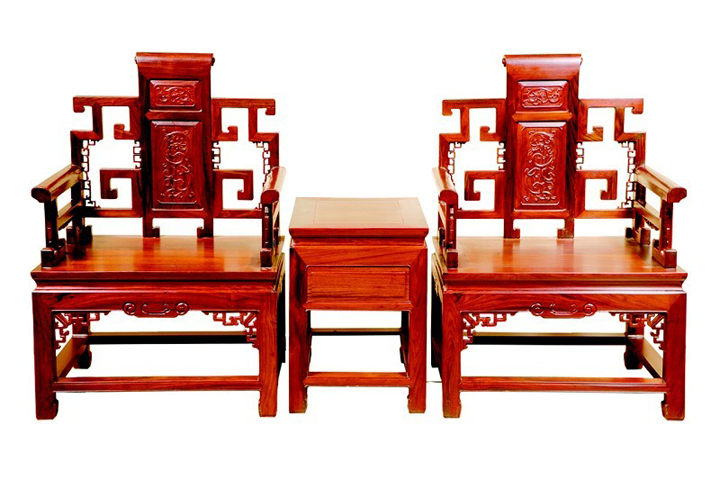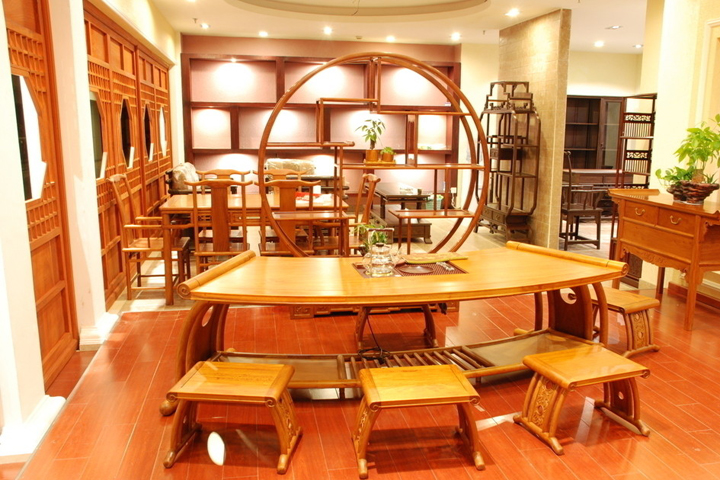Adhering to the dedicated woodworking spirit, the family business has transformed into a furniture kingdom. Transforming the Family Business into a Furniture Kingdom What is the most classic in the world? There’s a saying that “class is eternal.†Walking through the mahogany furniture hall of Okuilong, you can truly experience the timeless beauty of Chinese furniture. This brand from Taiwan has a history of nearly 60 years, yet it has remained quiet and focused, waiting for those who truly appreciate its value to come closer. Last month, I had the privilege of meeting Ye Wudong, the executive director of the "Qingmutang" brand under Yongxing Furniture. Through our conversation, I realized how deeply the original essence and style of a furniture brand reflect the personality of its leader. "Qingmutang" has a history of 60 years. Visiting the Ouyuetang Oriental Furniture Store in Ou Kailong, you’ll find the entire space filled with a “Modern Oriental†vibe. This Taiwanese brand carries a gentle and refined character, much like the people of Taiwan. The furniture is crafted from premium Burmese rosewood, blending practicality with aesthetics. It draws deeply from traditional cultural values while incorporating modern design trends, making it popular among young adults aged 30 to 40. The Yongxing Furniture business, based in Taiwan, has a history of nearly 60 years. Starting as a small factory, it has grown into a well-known enterprise with eight brands, including Qingmutang and the Tainan Furniture Industry Museum. Their success lies in their commitment to hard work and the enduring woodworking spirit. Qingmutang entered the mainland Chinese market in 2000 and now operates through direct sales and franchise models, with over 30 stores across 22 cities nationwide. Make the Family Business a Furniture Kingdom Furniture is not just a business for Ye Wudong—it's a legacy passed down through generations. His father and friends founded the Yongxing Furniture brand, which initially specialized in handmade Chinese furniture. In the 1960s, Ye Wudong didn’t join Yongxing immediately but instead became an agent for an American furniture brand. From Yongxing solid wood furniture to the “Qingmutang†modern oriental collection, and now to the new concept of modern oriental living, this represents three major transformations in the Yongxing Furniture story. While his father helped establish Yongxing as a respected Chinese furniture brand, Ye Wudong took on the challenge of launching Qingmutang, preserving the “old brand†while continuously innovating. With furniture that embodies oriental cultural heritage without Western influence, he aims to bring young people into the era of classic Chinese design. Today, the “Qingmutang†brand has evolved into eight key sections: technical heritage (Luban School), secondary industry development (Taiwan Furniture Industry Association), integrated marketing (Breeze Culture Communication), industry culture, craftsmanship (Yongxing Xiangmu), environmental protection processes (Greenwood Workshop), R&D design (Qingzhu Design), and brand channels (Qingmutang). These elements form the complete operational chain of Yongxing Furniture, shaping its current success. “Standing on China’s design, not shaken by the market.†Previously, when people thought of redwood furniture, they often associated it with older generations. However, Qingmutang has changed that perception by adopting a modern, simple, and “humanized†design. It emphasizes ergonomic functionality, allowing users to sit comfortably and enjoy every moment. Even with minimal decoration, a white wall and floor can beautifully complement this mahogany furniture in the “new Chinese style.†The furniture from “Qingmutang†focuses on simplicity and returning to basics. It features light structures and clean lines. A simple “Hanwa†stool, for instance, exudes elegance that is hard to resist. Sitting on it feels like touching something solid and refined. Its full structure is not only a test of material quality and craftsmanship but also a breakthrough in the traditional concept of mahogany furniture. Because “full of sputum, do Mingtou†doesn't belong to classical mahogany furniture but rather represents a model of modern oriental design. This is the vision Ye Wudong has always pursued: using the inheritance of Qingmutang furniture to promote modern oriental culture, guided by good spirits, authenticity, and the true essence of Taiwanese woodworking. It's more than just furniture—it's a lifestyle, a legacy, and a journey through time. 5-Inch Campsite Handcart,Camping Folding Cart,Outdoor Folding Cart,Camping Folding Trolley Yongkang Daluo Industry and Trade Co., Ltd , https://en.daluo.ru
